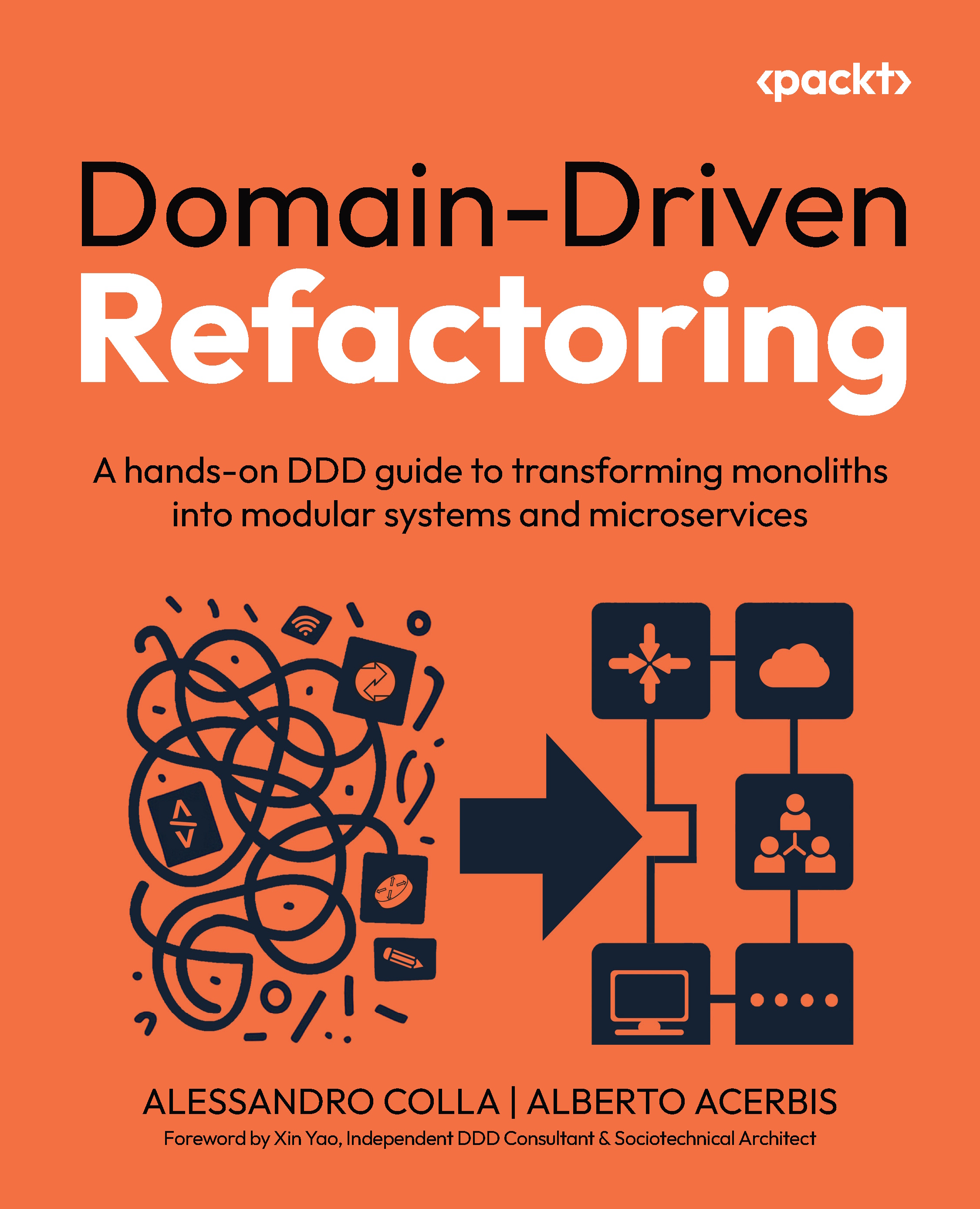Modular services and the need for database refactoring
Modular services form the core of the transformation from a monolithic architecture to a more flexible, maintainable, and scalable system. As you already learned in previous chapters, modular services are built around specific business domains and function as independent units that can evolve separately. This independence fosters agility, allowing teams to make changes in one service without having to worry about impacting other services. Each service owns its data, logic, and specific responsibilities, making it easier to manage complexity.
In practice, modular services are often designed around the principles of DDD, where each service represents a bounded context—a clearly defined area of the business. By aligning the database schema with these bounded contexts, we can significantly reduce the coupling between different parts of the system and ensure that each service interacts only with the data it needs. This eliminates...

































































